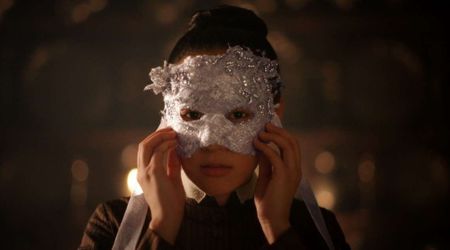'I May Destroy You' Episode 4 Review: Various levels of consent breached make for a hard but compelling watch

Spoilers for 'I May Destroy You' Episode 4 'That Was Fun'
Michaela Coel's very dark, intrinsically funny and strikingly relatable drama 'I May Destroy You' might have a blurry sexual assault at its core, but it is the varying levels of consent - the fine lines that separate intercourse from rape that are abundant throughout her show and worth watching out for.
Be it Coel's self-played protagonist Arabella's own assault at the hands of a stranger while blackout drunk or her friend Terry's (Weruche Opia) confusing encounter with two Italian strangers who pretended to not know each other just to have a threesome with her - the issue of consent is estimated, scrutinized and gauged in Coel's show unlike anything before. And for all the touts of bold, provocative and a difficult watch that the series might be associated with, there's no denying that the latest Episode 4 and its exploration of yet another confusing encounter for Arabella and Kwame (Paapa Essiedu) this time, only makes everything more compelling.
When we meet Arabella this time, it's seven weeks after her assault and she is just as dismissive of everything as she was the day she had to give a statement to the authorities. She goes to therapy because she has books to write and deadlines to meet - something that's been borrowed from Coel's own life as she has spoken in the past about how she was pressured to submit pages after being assaulted less than 24 hours ago. But this nonchalance and casual approach towards life that we see in Arabella might not seem very common, the way she goes about her life and decides to indulge in hooking up again might seem odd to some but that's the beauty of Coel's show.
Apart from being a commentary on the different ways one can breach consent, it also shows how a victim's reaction to assault and its aftermath doesn't necessarily have to be recoiling inside their own shell as they process the trauma. It's oddly reminiscent of 'American Horror Story' Season 3: 'Coven' where Emma Roberts's character Madison Montgomery goes on her very nihilistic monologue about how she was "gang-raped, and two days later I was back in class like nothing happened. I mean, that must have hurt like hell, right? Most people never get over stuff like that, and I was, like, 'Let's go for Jamba juice.'"
Arabella shows a similar numbness to being assaulted, but that doesn't mean she's not trying to process it. When not keeping a company with her at all times, she decides to have sex again with a guy called Zain (Karan Gill) who ends up taking his condom off mid-sex and ejaculates inside her. The conventional reaction to what is otherwise known as stealthing, seems like a big blow-up, but Arabella doesn't exhibit that. Instead, she is quite calm about it, asking him to just pay for her Plan-B pill and laughing about how the worst thing he did to her was dropping her phone on the sidewalk. These nuances are what make Coel's show stand out. To some, it might even seem abnormal, but that's the thing about being violated - there's no right or wrong way to go about it. For Arabella, whatever keeps her mind off the white man thrusting at her inside a public bathroom, is enough therapy. And Coel both understands these layers of processing trauma and executes it well - both with her writing and actually portraying it on screen.
That said, no discussion on the exploration of consent, assault and modern dating can be done without addressing the very niches of the topics: men raping other men under the pretext of casual dating. In Episode 4, Arabella's close friend Kwame, her pillar of strength and support who accompanied her to the station and later put her to sleep, gets assaulted by a guy he meets on a dating app. It's heartbreaking and poignant in equal parts because this isn't a topic that mainstream primetime television addresses often. Sure, we have seen brutal cases of assault on men, by men. Netflix's '13 Reasons Why' crafted quite the reputation for it when a closeted bully raped his classmate with a mop in the school bathroom, but that was aggression and payback.
What happens to Kwame is what happens to a lot of women and we know of those stories. What we don't often come across are similar stories happening to people like Kwame. A black gay man assaulting another black gay man is just as much of a shocker for television as it was to see a woman put on a sanitary napkin or a hook up scrutinizing her period blood clot. But such is Coel's show, it pulls out all the confusing, embarrassing, gritty details of dating in today's world and presents to us all the possible outcomes of how wrong it can go. Through Arabella it asserts the many ways one processes trauma, through Kwame it relays how assault can even happen to people you don't always expect to be posing the threat. It's painful but it's significant. A must-watch if you will.
'I May Destroy You' airs on Tuesdays at 9 pm only on HBO.










